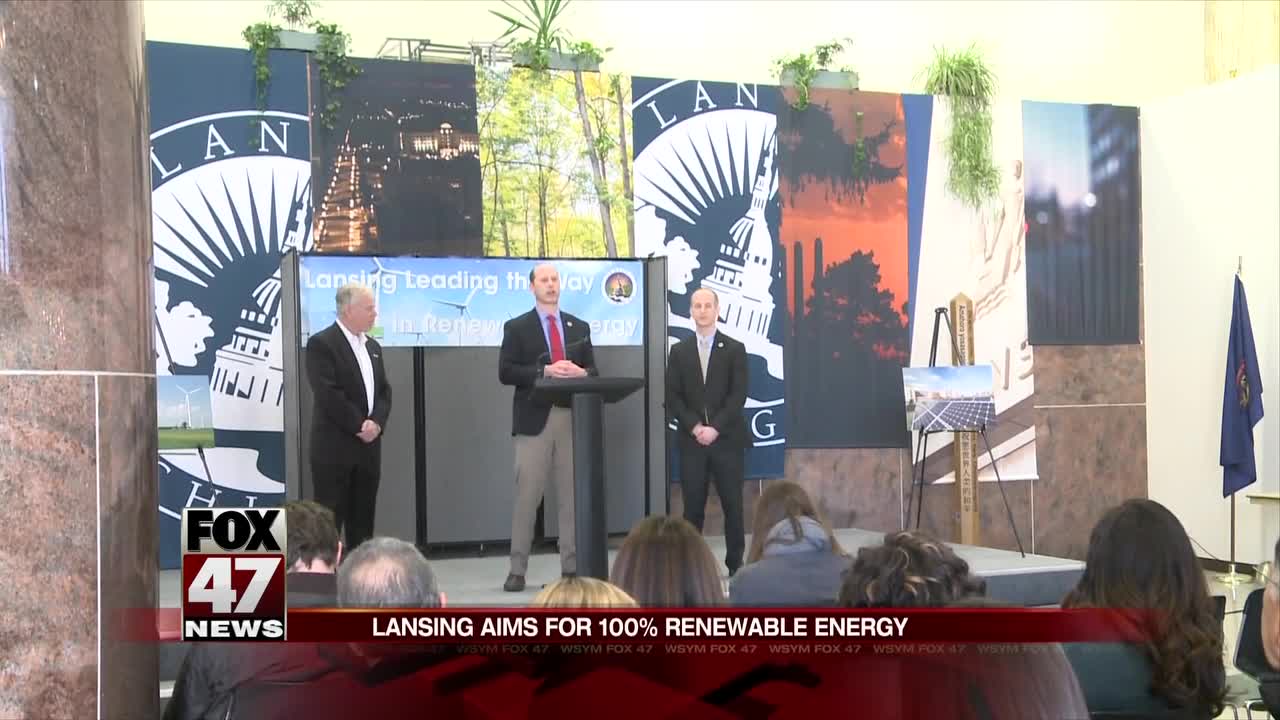LANSING, Mich. — Mayor Andy Schor today announced he will propose to make the City of Lansing the first city in the State of Michigan to power all of its government buildings using energy from 100 percent renewable sources. The Lansing Board of Water & Light (BWL) will provide renewable energy credits to match the annual electric usage from all 187 city facilities with electricity generated from a renewable resource beginning July 1, 2019. The plan will be in Mayor Schor’s budget proposal to Lansing City Council during their meeting on Monday, March 25.
“I am thrilled to announce that the city, in partnership with BWL, is taking the necessary first steps in addressing climate change by purchasing renewable energy for all city-owned buildings,” said Mayor Schor.
The City of Lansing will purchase renewable energy credits from BWL through its Greenwise Power Program. The program, open to both residential and commercial customers, allows anyone in BWL’s electric service territory to purchase electricity from a cleaner, renewable energy source. Customers can purchase 250 kWh blocks of energy for $3.25, or 1.3 cents per kWh, which is added to the customer’s normal electric bill. Customers subscribing to a number of blocks equal to or exceeding their annual usage are considered to be powered with 100 percent renewable energy.
“The BWL was the first utility in Michigan to have a renewable energy portfolio in 2007 before the state mandated it, and we’re delighted to be able to provide the City of Lansing the means by which all government buildings will be 100 percent renewable by July,” said BWL General Manager Dick Peffley. “The Greenwise Program allows our customers the opportunity to invest in renewable energy, and also helps reinforce our commitment to being a cleaner utility.”
In addition to moving toward 100 percent renewable energy in city buildings, the city has also started to work on a Climate Action Plan. The first phase of the climate action plan will look at energy use at all city facilities to establish a baseline and set goals for reductions and other opportunities for future increases in energy efficiency. “We look forward to exploring the findings and implementing the recommendations of our Climate Action plan,” said Mayor Schor. “The second phase of the project will follow the same process, but focus on the entire City of Lansing including energy use, climate resilience, and transportation.”
The City is working with an energy services company to make energy improvement recommendations to the largest city facilities. The improvements will be funded through guaranteed energy savings and are expected to be in place by mid-2020.



